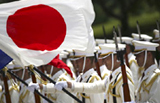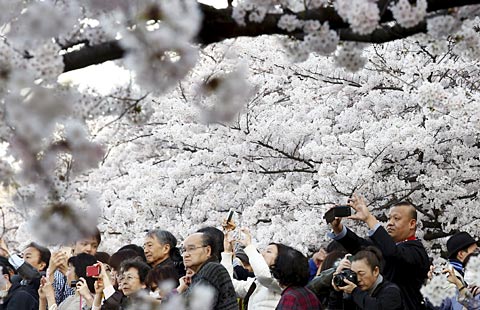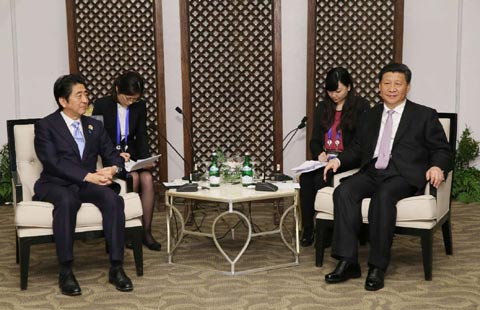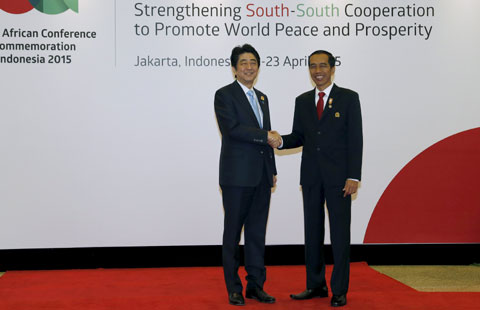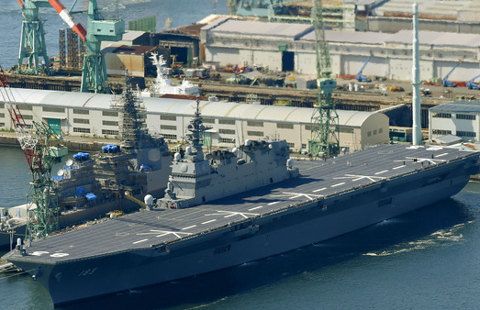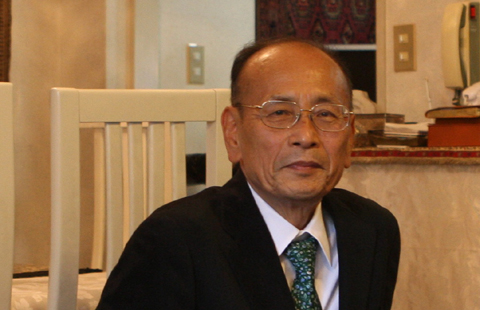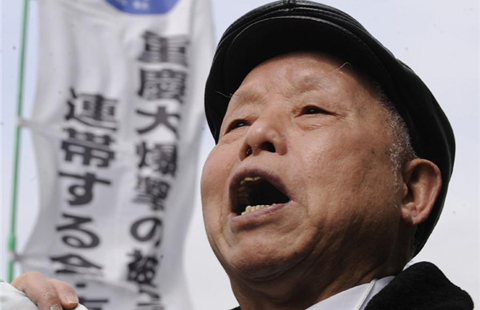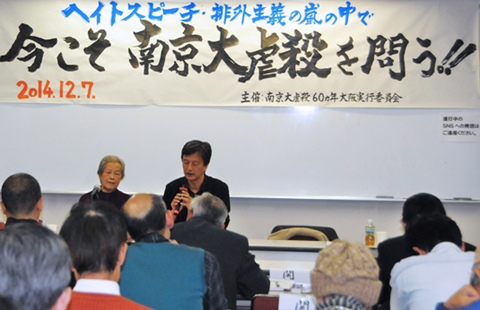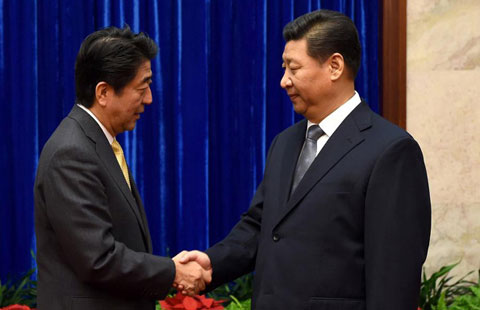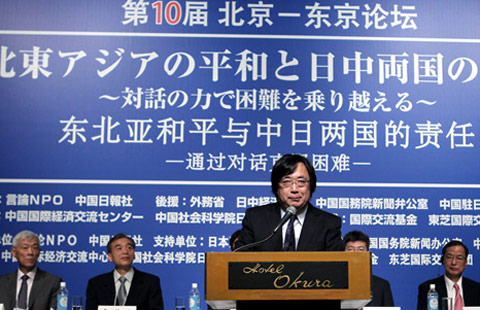Japan should issue apology to Asian states, ex-PM says
[2015-05-11 06:58]Japan should again apologize to other Asian countries for its wartime behavior, according to the country's former prime minister Tomiichi Murayama.
Chinese tourists flock to Japan during cherry blossom season
[2015-04-23 14:12]The number of Chinese tourists visiting Japan has surged recently as the cherry blossoms enter their peak period of bloom.
Xi meets Abe in Jakarta on China-Japan ties
[2015-04-22 19:13]Chinese President Xi Jinping and Japanese Prime Minister Shinzo Abe held a meeting at the request of the Japanese side Wednesday.
Abe expresses 'deep remorse' over war without mentioning responsibility
[2015-04-22 14:44]Japanese Prime Minister Shinzo Abe said on Wednesday that Japan, with feelings of deep remorse over the past war, made a pledge to adhere to the Bandung principles, which highlights peace and cooperation.
Japan's largest helicopter destroyer enters service
[2015-03-25 17:48]The largest helicopter destroyer of Japan's Self-Defense Forces "Izumo" has been handed over to the Maritime SDF since Wednesday, local media reported.
Japan needs to seek reconciliation with neighbors: ex-diplomat
[2015-03-16 11:36]Japan needs to seek reconciliation with its neighboring countries through facing up to its wartime past, just like what Germany has done, a Japanese former senior official with the country's foreign ministry said.
Japan has to reflect on history: former PM
[2015-03-01 13:37]If Japan plans to regain trust from its neighboring countries, it needs to squarely look at its wartime history and be apart from the past.
WWII Chongqing bombing survivors lose lawsuit
[2015-02-25 22:03]The Tokyo District Court on Wednesday ruled against a group of Chongqing bombing survivors who sued the Japanese government and asked for apology and compensation.
Nanjing Massacre survivor attends testimony meeting in Japan
[2014-12-08 10:28]Ai Yiying, one of the around 200 living survivors of the Nanjing Massacre in 1937, shared her memory of the incident with Japanese residents at a testimony meeting Sunday in Osaka, conveying the truth about Nanjing Massacre.
Xi calls on Japan for trust building
[2014-11-10 14:48]President Xi Jinping called on Japan to honor its official remorse about wartime history and embark on trust-building measures in a meeting with Japanese Prime Minister Shinzo Abe on Monday.
China calls on Japan to create good tone for meeting
[2014-11-08 16:37]China said on Saturday it hopes Japan can create a favorable atmosphere for an expected meeting between the two countries' leaders.
Beijing-Tokyo Forum wraps up
[2014-09-29 14:16]Yasushi Kudo, president of Japan's Genron NPO, a Japanese non-profit group, reads the Tokyo Consensus, a joint statement issued at the end of the 10th Beijing-Tokyo Forum, in Tokyo, Sept 29, 2014.
